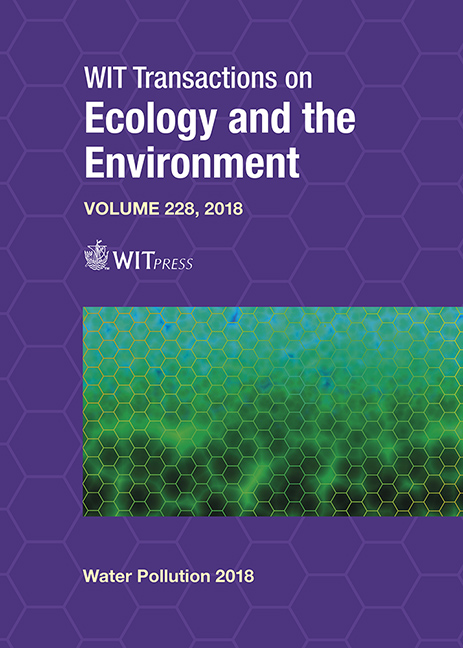WATER QUALITY CHECKS ON RIVER ATUWARA, SOUTH-WEST NIGERIA
Price
Free (open access)
Transaction
Volume
228
Pages
9
Page Range
165 - 173
Published
2018
Size
1,020 kb
Paper DOI
10.2495/WP180171
Copyright
WIT Press
Author(s)
DAVID O. OMOLE, ADEBANJI S. OGBIYE, EZECHIEL O. LONGE, IFE K. ADEWUMI, OLUGBENGA O. ELEMILE, THEOPHILUS I. TENEBE
Abstract
Some water-use practices taking place along River Atuwara are conflicting and detrimental to public health and the environment. The Ogun State Water Corporation (OGSWC), which has the responsibility of supplying piped water to residents and industrial firms, also withdraws raw water from River Atuwara. However, OGSWC has low capacity to meet demand, thus many residents’ recourse to alternative water sources including withdrawing water from the river for domestic purposes. At the upstream section of River Atuwara, however, waste deposits from illegal discharges of effluent from industries and sewage collectors are made into the river. Water samples were obtained from the upstream point where wastes are deposited into the river as well as the downstream location where villagers draw the water. Chemical parameters tested for include heavy metals such as iron, zinc, lead, cadmium, copper, nickel, and chromium. Additionally, nitrate and nitrite were tested. Tested biological parameters include total coliform and total bacteria count while tested physical parameters include pH, temperature, dissolved oxygen, total dissolved solids, total suspended solids, and turbidity. All parameters were determined using standard laboratory methods. The results were compared to the Nigerian standard for drinking water quality (NSDWQ). Results indicate that the water being consumed by the villagers is unfit for drinking as lead, nickel, nitrite, and total coliform exceeded the standard limit by 900%, 6,910%, 8,000%, and 1,610% respectively. The researchers recommended that the government needs to protect the helpless villagers from industrial polluters by deploying appropriate law enforcement agents. Also, advocacy programs should be launched to educate villagers on dangers of ingesting raw water from River Atuwara. Also, methods for home treatment of identified pollutants from the river should be taught to the users. These measures are necessary to protect public health from a possible outbreak of epidemic.
Keywords
river, pollution, water quality standards, heavy metals, drinking water, public health, dissolved oxygen





